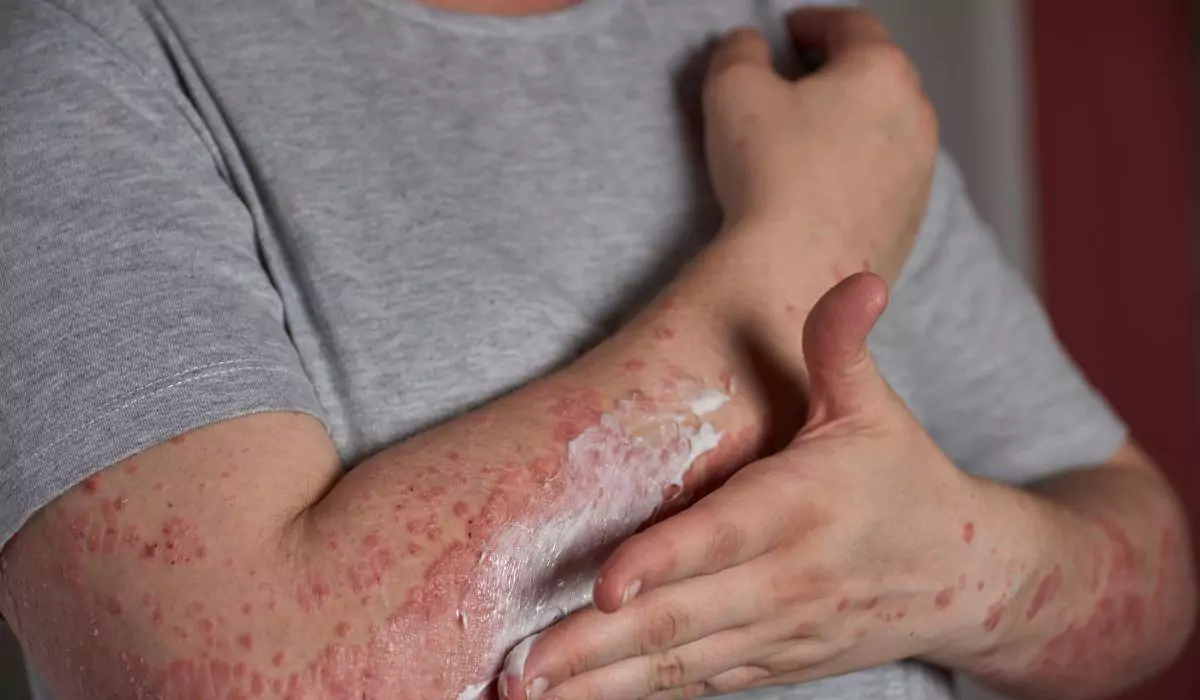
Introduction
Have you ever noticed swelling, itching, and non-infectious rashes on your arms or any part of the legs? If yes, it may be Lichen Planus.
Although there is not enough data on how many people have been affected by Lichen Planus, many studies show it affects about 1 percent of the world’s population.
Ordinary lLichen Planus is treatable at home. The affected person should take the necessary medicines by asking the chemist. The disease is not contagious, but hygiene is also a part of treatment.
Lichen Planus is an inflammatory condition that affects the hair, skin, nails, and mucous membranes. In Lichen Planus, it is common for the skin to have scars like purple rashes and itching. This problem occurs for a few weeks.
The membrane covers the mouth, vagina, and other parts. Due to Lichen Planus, white sticky patches form, which are also the cause of pain in some cases.
Request an Appointment at Smiles
What are the Causes of Lichen Planus?
These are some diseases and conditions which increases the chances of getting Lichen Planus.
- ● Some dyes, metals, and chemicals
- ● Hepatitis C infection
- ● Flu vaccines
- ● Side effects of medicines used to treat heart disease, high blood pressure, or arthritis
- ● Pain relievers like ibuprofen and naproxen
What are the Symptoms of Lichen Planus?
- ● Purple patches with a slight bulge on the patient’s skin, ankle, wrist, or genitals.
- ● Itching
- ● Blisters that form a crust
- ● White spots on the mouth, tongue, or lips
- ● Inflamed wounds or scars in the mouth or vagina
- ● Hair fall
- ● Change in color of the scalp
- ● Nail damage
How is Lichen Planus Diagnosed?
- ● Hepatitis C test: The doctor may do a blood test to check for Hepatitis C disease.
- ● Allergy test: The problem of Lichen Planus is also due to contact with an allergenic substance. Your doctor will try to find out the allergens to which you are allergic.
- ● Biopsy: Your doctor can remove a small tissue from the affected area and analyze it with the help of a microscope; to determine the characteristic of the cell pattern of Lichen Planus.
If your doctor suspects an abnormality, he may do some more tests in the area affected by Lichen Planus, such as an ear, mouth, nose, or genitals.
How is Lichen Planus Treated?
Some medicines and therapies are helpful to treat Lichen Planus. These medicines relieve the symptoms of itching, pain, wound, burning sensation. Before trying any therapy or medication, discuss its potential benefits and side effects with your doctor.
These options exist for the treatment of Lichen Planus:
- ● Corticosteroids: Generally, doctors prefer corticosteroids for treating Lichen Planus. It can be in the form of cream or ointment. If this does not help and the condition worsens, then doctors can also inject corticosteroids.
Application of topical corticosteroids may have a side effect and can cause skin irritation. This treatment is useful but only for a short time.
- ● Anti-infection drugs: You can take a dose of anti-infection antibiotics to relieve symptoms of Lichen Planus. Antimalarial hydroxychloroquine and antibiotics also help to treat skin infections and inflammation.
- ● Antihistamines: You can take antihistamine medications orally to reduce the itching and other symptoms caused by Lichen Planus.
- ● Retinoids: If corticosteroids or light therapy does not treat Lichen Planus, doctors may ask to take retinoids orally.
There is a risk of birth-defect due to retinoids. Therefore, women who are pregnant or are thinking of getting pregnant should not use retinoids.
- ● Light therapy: Light therapy or phototherapy can reduce the effect of Lichen Planus. In this therapy, ultraviolet B rays are injected into the epidermis (upper layer of skin). This treatment lasts for several weeks and is treated two to three times every week.
Light therapy does not help people with darker skin in treating Lichen Planus.
What is the Results of Lichen Planus Treatment?
What are the Risk Associated with Lichen Planus Treatments?
Exposure to the allergens given below may also cause Lichen Planus:
- ● Antibiotics
- ● Certain kinds of dyes
- ● Gold
- ● diuretics
- ● Arsenic
- ● Iodide compounds
- ● Other medications
Request an Appointment at Smiles
FAQ's
Treating Lichen Planus with Light Therapy can Cause Cancer?
Do all the Treatments Mentioned Above Provide Permanent Relief?
Is the Home Remedy for Lichen Planus Possible?
How Long does it take to Treat Lichen Planus?
What not to do after Treating Lichen Planus?
Need Help?
For any Information about our Locations, Doctors or Treatments.
